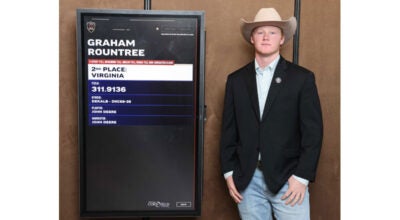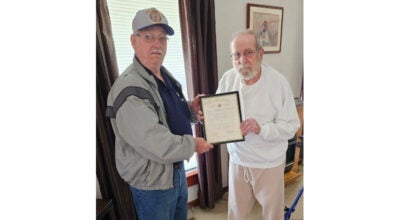IP appeal moving forward
Published 7:00 pm Friday, January 31, 2020
|
Getting your Trinity Audio player ready...
|
FRANKLIN
International Paper scored a victory recently in its effort to appeal a 2018 Isle of Wight County Circuit Court ruling — which had dismissed the company’s machinery and tools tax lawsuit against the county government — to the Supreme Court of Virginia.
On Dec. 20, 2019, a panel of three justices ruled that the company’s petition for appeal had enough merit to go before the entire judicial body in 2020.
“The case is going forward,” confirmed McGuire Woods LLP attorney Craig D. Bell, who served as IP’s lead counsel in the 2018 case and is again representing the company in its appeal. “We are in the briefing stage now, which will run through about mid-March.”
IP’s petition for appeal had asked the Supreme Court to determine “whether a locality may raise taxes to seize legally mandated and court-ordered tax refunds,” as well as other matters of law. In the 2018 case, the company had alleged that the county, by virtue of substantially raising its M&T tax rate for the 2017-2018 fiscal year, had effectively defied a previous court order granting IP M&T tax refunds for fiscal years 2013, 2014 and 2015. That order had been issued after Circuit Court Judge Carl E. Eason Jr. had ruled in favor of IP in a February 2017 case also concerning M&T taxes, in which the company had contended that its tax assessment for the past several fiscal years had been overly high because it had not taken into account the Franklin paper mill’s equipment having depreciated in value.
Nearly three months after the February 2017 ruling, Isle of Wight’s Board of Supervisors voted to increase the county’s M&T rate for the 2017-2018 fiscal year from $1.75 per $100 of assessed value to $4.24 per $100, an increase of approximately 142 percent. Then, in the summer of 2017, the Board voted to set aside funds for an economic development retention grant program, which was tasked with providing tax breaks to M&T taxpayers, ensuring that each paid no more and no less in 2017-2018 than the amount of any refunds received during fiscal year 2016-2017, plus what would have been owed for 2017-2018 had the M&T tax rate remained flat.
Following a three-day trial in November 2018, Judge Eason this time ruled that the Board had acted legally in raising taxes to cover a general fund shortfall, which had resulted from the February 2017 court-ordered refund paid to IP, and from refunds the county had voluntarily paid to other M&T taxpayers when the county’s commissioner of the revenue, Gerald Gwaltney, adopted a new methodology for current and future M&T assessments in October 2016. In the final order, which Eason signed on Jan. 29, 2019, the judge ruled that the county’s decision to raise its M&T tax did not violate IP’s vested rights in the prior refunds, nor did it constitute a violation of his 2017 court order. He further ruled that the economic development retention grants were not “nonuniform in the sense of unconstitutional or otherwise in violation of Virginia Code 58.1-3984.”
In the county’s brief in opposition to IP’s appeal, Sands Anderson PC attorney Andrew R. McRoberts, who had served as lead counsel for Isle of Wight County during the 2018 trial, had argued that should the company’s appeal be allowed to move forward, it would “eviscerate the ability of localities across the Commonwealth to set tax rates, balance their budgets, and/or appropriate funds for well-settled public purposes.” When asked for comments on IP’s appeal going before all seven Virginia justices, McRoberts again expressed confidence in his belief that Isle of Wight County did nothing wrong.
“We believe that the actions of the Board of Supervisors took in adopting a uniform machinery & tools tax rate for 2017, and in approving and appropriating grant monies for certain M&T taxpayers were both lawful legislative acts, and that neither was an M&T assessment which may be challenged under the statute for correction of erroneous assessments,” McRoberts said. “We believe that Judge Eason’s decision in dismissing International Paper’s was justified by the law and evidence at trial.”
Jenny Dixon, communications manager for IP’s Franklin mill, confirmed that the case was moving forward when asked for comments, but said she could not comment further on pending litigation. Assistant County Administrator Don Robertson likewise said that the county typically does not comment on pending litigation.





